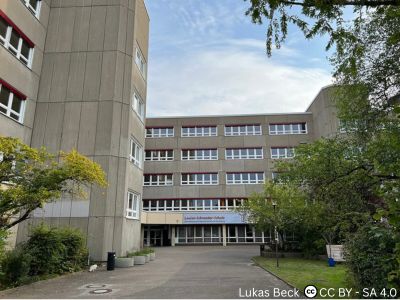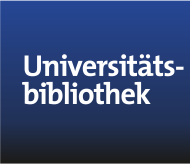Information on vocational training
General Information on Vocational Training
The profession of Specialist in Media and Information Services is a state-recognised vocational qualification in Germany. Training takes place within the dual system, either in a public sector institution or in the commercial sector. In practice, this profession is often referred to as FaMI (an abbreviation of the German title). Vocational training is available in five areas of specialisation:
![]() Library
Library![]() Archive
Archive![]() Information and Documentation
Information and Documentation![]() Image Agency
Image Agency![]() Medical Documentation
Medical Documentation
What all these specialisations have in common is the core responsibility of a FaMI: gathering information, making it systematically accessible, and providing it to users. The training programme lasts three years and is carried out in a wide range of institutions, depending on the chosen specialisation. These may include, for example:
![]() Libraries
Libraries![]() Radio and television broadcasters
Radio and television broadcasters![]() Media and press archives
Media and press archives![]() Specialised information centres
Specialised information centres![]() Image agencies and photo archives
Image agencies and photo archives![]() Museums
Museums![]() Hospitals and other healthcare institutions
Hospitals and other healthcare institutions![]() Universities and research institutes
Universities and research institutes
After one and a half years, all trainees take a written intermediate examination that assesses general knowledge across all specialisations. This examination is the same for everyone, regardless of their specialisation. At the end of the apprenticeship, trainees sit both a written and oral final examination. These final exams are tailored to each specialisation. The oral examination specifically focuses on the skills and knowledge acquired during the practical training in the host institution.
FaMI trainees follow a national training framework based on learning fields, which defines all the required knowledge and skills for the profession. This framework ensures that both the training institution and the vocational school can deliver the essential competencies in a structured and coordinated way.
Apprenticeship
You can find detailed information about this apprenticeship on the website of the Federal Employment Agency:
→ Profile on the Federal Employment Agency website (in German)
Further information can be found on the Berufenet website.
→ BERUFENET – Federal Employment Agency career database (in German)
Vocational Training in the University Library
The University Library of the European University Viadrina Foundation has been training Specialists in Media and Information Services – Library Specialisation since 1998. This three-year vocational training programme follows the dual training system: practical skills and knowledge are taught at the University Library, while theoretical instruction is provided through block courses at the Louise-Schroeder-Schule in Berlin.
Training Content at the University Library
Trainees gain hands-on experience in a wide range of library processes, including:

![]() Understanding acquisition workflows
Understanding acquisition workflows![]() Cataloguing library holdings
Cataloguing library holdings![]() Processing media in a user-friendly way
Processing media in a user-friendly way![]() Maintaining the library’s inventory
Maintaining the library’s inventory![]() Assisting and advising library users
Assisting and advising library users![]() Supporting lending services and library use
Supporting lending services and library use![]() Handling administrative procedures
Handling administrative procedures![]() Providing and communicating access to resources and information
Providing and communicating access to resources and information![]() Conducting database research
Conducting database research![]() Completing internships at other institutions (e.g. public libraries or archives)
Completing internships at other institutions (e.g. public libraries or archives)
Departmental Rotation and University Insight:
Throughout the programme, trainees rotate through all key departments of the University Library, including:
![]() Acquisitions
Acquisitions![]() Cataloguing
Cataloguing![]() User Services (including local and interlibrary loan)
User Services (including local and interlibrary loan)![]() Book Processing and Maintenance
Book Processing and Maintenance
They also become familiar with the subject-specific collections, the library secretariat, and - if desired - the IT department. To help trainees understand the broader organisational context, they also spend time in various administrative departments of the university.
Supervision and Support
All theoretical and practical knowledge is taught systematically. The dedicated and knowledgeable staff in each department provide guidance, answer questions, and encourage trainees to work independently and accurately. Trainees are also introduced to the technical equipment and communication systems used in modern library operations and are trained in the use of the library management system. All necessary training materials—such as textbooks, a training record booklet, and writing supplies—are provided by the University Library.
Work Environment
The main places of work are offices and the reading room. Additional internships during the training programme allow trainees to gain experience in other types of institutions, which helps to strengthen both motivation and practical skills.
Examinations
In the second year, trainees take a written intermediate examination together with other FaMI trainees in the federal state of Brandenburg. At the end of the training, trainees sit a final examination (written and oral), again with others specialising in library services in Brandenburg. Unlike the intermediate exam, this final exam focuses exclusively on content relevant to the Library Specialisation and does not include interdisciplinary material.
Highlights of the Training Programme
Vocational School
 The school-based component of the vocational training programme takes place at the Louise-Schroeder-Schule, an upper-level vocational college for office management and administration located in Berlin-Lichterfelde.
The school-based component of the vocational training programme takes place at the Louise-Schroeder-Schule, an upper-level vocational college for office management and administration located in Berlin-Lichterfelde.
A distinctive feature of the training to become a Specialist in Media and Information Services (FaMI) is the action-oriented didactics and methodology used in the classroom instruction.
The Louise-Schroeder-Schule is the only vocational school in Germany that offers such a wide range of practically-oriented projects in this profession. These projects enable trainees to take an active role in shaping their own learning: they plan, carry out, and evaluate professional tasks independently. This hands-on learning approach is both motivating and effective, as demonstrated by the excellent results and consistently positive feedback from trainees.
Trainees also learn how to use modern communication tools independently. State-of-the-art technologies and software allow them to work systematically with a range of digital tools, significantly broadening their technical understanding beyond what is taught at the training institution. In doing so, they also acquire additional qualifications that go beyond the official requirements of the FaMI training programme in the library specialisation.
Further information about the FaMI profession and training at the Louise-Schroeder-Schule is available here: → More about the FaMI programme (in German)
Internships
The vocational training programme at the University Library of the European University Viadrina offers diverse and enriching practical experiences.
In the second year of training, trainees complete several internships designed to give them insight into different professional environments. These include:
an internship in a public library
an internship in another specialisation, preferably in an archive
The public library internship allows trainees to recognise the differences between public and academic libraries. It also offers valuable experience in public outreach, working with different library systems, and serving a variety of user groups.
This added perspective not only broadens the trainee’s theoretical and practical knowledge, but also provides a deeper understanding of workflows across different institutions—valuable preparation for the transition into professional life.
The University Library also arranges an eight-week internship in an archive. Here, trainees can learn the fundamentals of archival work and develop core skills that may prove highly relevant in their future careers.
University Placements
In addition to the specialist teaching at the vocational school and the external internships, trainees also benefit from assignments within the university itself.
By spending time in various university departments, trainees gain a solid understanding of the institution's internal operations and acquire practical knowledge of administrative workflows.
Further skills are developed, for example, through a placement in the University Press Office, where trainees receive guidance from experienced staff and gain insights into internal and external public relations work.
These in-house placements also help trainees enhance their communication skills, identify their personal strengths, and develop key professional competencies that will benefit them throughout their careers.
